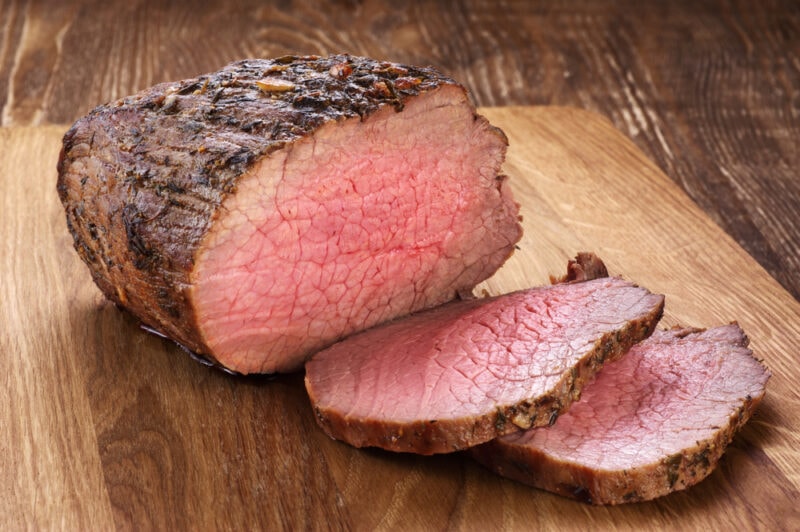Just like people, dogs need fat in their diet. Dogs need quite a bit of fat. In the wild, dogs would be eating most prey animals, which are high in protein and fat. In a domestic setting, they need similar nutrition, according to various studies.
To help ensure your pet is consuming enough fat, most dog foods use quite a bit of added fat in their formula. These come from a wide variety of sources, some of which are better than others. We’ll take a look at some of the most common sources of fat in dog food.
The 10 Common Sources of Fats for Dogs
1. Chicken Fat
Chicken fat is commonly used in dog food as it is a low-cost, high-quality option. Because this sort of fat comes from a prey source, it is a good option for most canines. It is important to note that dogs that are allergic to chicken can eat chicken fat. Dogs are only allergic to the protein found in chicken. The fat doesn’t contain any of this protein, so dogs don’t have reactions to it.

2. Fish Oil
Fish oil is usually a secondary fat option. In many cases, the dog food formula will include a different fat in a higher amount. Fish oil is often added because it is high in omega fatty acids. Omega-3s are essential for a dog’s skin and coat health. It can also reduce inflammation and may help regulate the immune system. It plays a role in brain development, so it may be essential for puppies.
Once again, dogs that are allergic to fish can eat fish oil, as there are no proteins included. Fish oil is considered a very high-quality option, as it contains a high level of omega 3s.
3. Beef Fat
Beef fat is used less often than chicken fat. However, it may be used in some beef-flavored foods. It is similar to chicken fat in nearly every way. It is a natural fat source and very high quality. Most dogs can absorb and use beef fat without any issues. Dogs that are allergic to beef can eat beef fat, as it doesn’t contain any proteins.

4. Salmon Oil
This is very similar to fish oil. However, it only comes from salmon. It is high in omega fatty acids and carries all the benefits of fish oil. In all honesty, there isn’t much difference between salmon oil and fish oil. It’s just the specific fish they’re getting the oil from.
5. “Animal” Fat
Generally, we prefer fats that come from animals, as this mirrors what dogs would eat in the wild. However, generic “animal” fat doesn’t have a source listed. In other words, this sort of animal fat is mystery meat. It could come from everywhere, including lower-quality options. Typically, if the fat came from a high-quality source, the company would have named it, as opposed to not disclosing its source.
We don’t recommend foods with generic animal fat for this reason.

6. Canola Oil
Canola oil is an inexpensive play fat that is high in omega fatty acids. However, it is specifically high in omega-6s—not the omega-3s that most oils are made out of. It does contain some omega-3s, but not nearly as many as fish oil. It is also often made from genetically modified rapeseed, which also means it may contain pesticides. It is also less biologically available to dogs, as it comes from a plant source.
This isn’t an awful option for your canine, but it isn’t the best one out there, either.
7. Sunflower and Safflower Oil
We included both of these fat types in the same category, as they are exceptionally nutritionally similar to each other. Both contain no omega-3s. Instead, they are incredibly high in omega-6s. This isn’t necessarily the best nutrition for our canines, so they are generally considered lower-quality options. They are less nutritious than animal fats and canola oil, which at least contains some omega-3s.
Sunflower oil is specifically resistant to cooking, which is why so many companies decide to use it in their formula. They can heat it to a higher temperature without worrying about it affecting the nutritional oil.
Some types of sunflower oils are better than others. However, companies usually don’t specify the kind on their package.

8. Vegetable Oil
Vegetable oil is another one of those vague ingredients that could be nearly anything. We don’t know which vegetable it came from, and therefore, we can’t tell much about its nutritional content. For this reason, you generally have to assume that this is a lower-quality option. If it was quality vegetable oil, the source would likely be named.
9. Mineral Oil
Mineral oil does not have any nutritional value. It isn’t a nutritional type of fat like the other options listed in this article. Instead, it works more as a stool softener and may be a sign that the food does not contain enough fiber to encourage regular bowel movements. Therefore, the company was forced to include mineral oil.
This ingredient is a bit controversial. The European Food Safety Authority has questioned the safety of mineral oil based on their scientific opinion. This ingredient cannot be considered high-quality by any means and is usually a sign of low-quality dog food.

10. Flaxseed
Flaxseed is one of the better plant options for fat. It contains mostly omega-3 fatty acids, which is similar to what animal fat sources contain. It is also a rich soluble fiber, which is essential for your dogs’ digestive system. For this reason, flaxseed is a common ingredient in most dog foods. It is also relatively inexpensive.
Flaxseed is also high in protein, though. This raises the protein content of the food. You need to keep this in mind when judging the protein content of food since some of the protein will come from flaxseed, not a higher-quality animal source.
- Determine proper dog food portions and ideal daily intake with our helpful calorie calculator here.
See also:
Featured image credit by: SamaraHeisz5, Shutterstock












